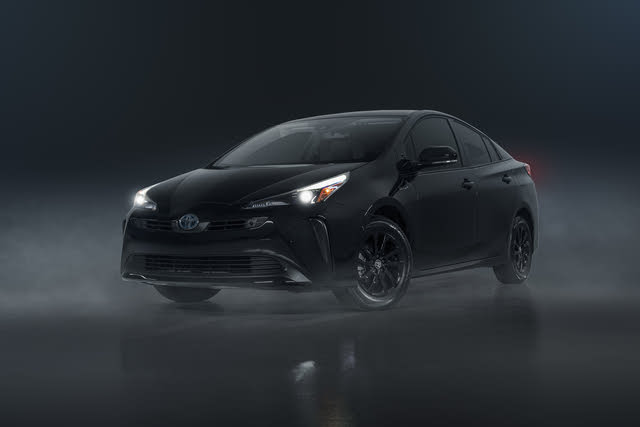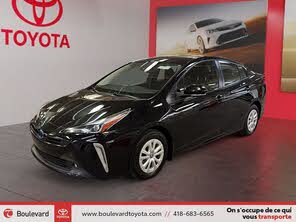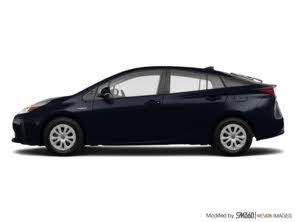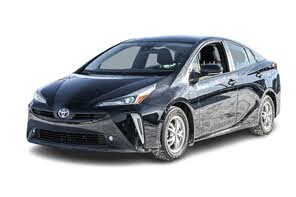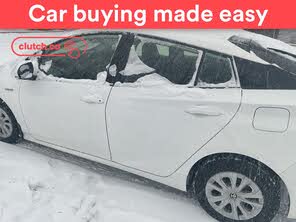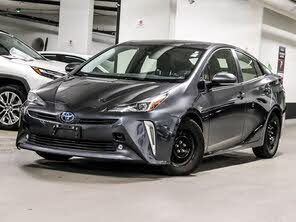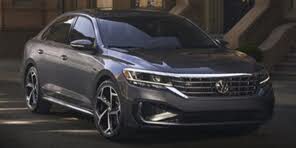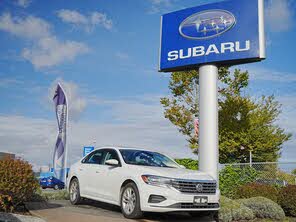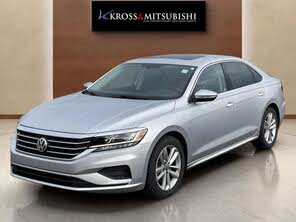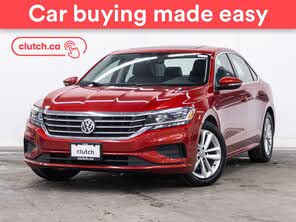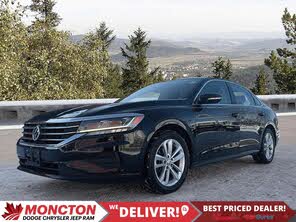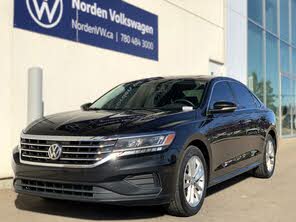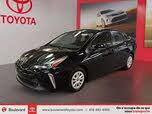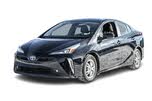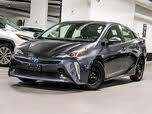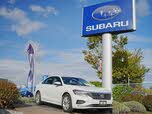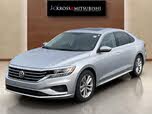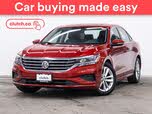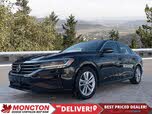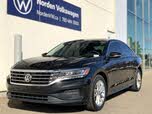2022 Toyota Prius vs 2021 Volkswagen Passat
Overview | |
MSRP$23,995 | MSRP$25,075 |
Listings54 | Listings5 |
Ratings & Reviews | |
User Reviews | User Reviews |
Expert reviews6.5 out of 10 | Expert reviews |
2021 Volkswagen Passat Reviews SummaryIn 2011, when a Volkswagen Passat was launched customized for the North American market, VW thought the sedan was the key to domination. The Honda Accord and Toyota Camry were still the default mid-size sedan choice for most buyers at that time, after all, particularly in the U.S. where mid-size cars were much more strongly preferred. A lot has changed since then: SUVs are surging in popularity, and a diesel-emissions scandal has forced VW to focus more on electric cars. With the flashier Arteon now in the lineup, however, the Passat has been repositioned as VW's value-focused midsize sedan. Both the Passat and the Arteon are nearing the end of their lives here in Canada as they’ll be discontinued at the end of the 2022 model year. The Passat got a significant update for the 2020 model year, so changes for 2021 are fairly limited. The previously available Comfortline trim level is gone, leaving just the Highline and Execline models. Adaptive cruise control is now standard. Our test car was a U.S.-spec SE model, the closest Canadian equivalent of which would be the Highline, though some equipment varies. | |
2022 Toyota Prius Reviews Summary | |
No video found | No video found |
Popular Features & Specs | |
Engine2.0L 174 hp I4 | Engine1.8L 121 hp I4 Hybrid |
Drive TrainFWD | Drive TrainFWD |
Seating Capacity5 | Seating Capacity5 |
Horsepower174 hp @ 5200 rpm | Horsepower |
EV Battery Capacity | EV Battery Capacity0.83 kWh |
MPG City24 | MPG City54 |
MPG Highway36 | MPG Highway50 |
Engine | |
Engine Name2.0L 174 hp I4 | Engine Name1.8L 121 hp I4 Hybrid |
Torque206 lb-ft @ 1700 rpm | Torque |
Horsepower174 hp @ 5200 rpm | Horsepower |
DrivetrainFWD | DrivetrainFWD |
Fuel Economy | |
EV Battery Capacity | EV Battery Capacity0.83 kWh |
MPG City24 | MPG City54 |
MPG Highway36 | MPG Highway50 |
Interior | |
Seating Capacity5 | Seating Capacity5 |
Safety | |
Front Crash Overall4 | Front Crash Overall4 |
Side Crash Overall5 | Side Crash Overall5 |
Dimensions & Capacity | |
Cargo Space15.9 cu ft | Cargo Space27.4 cu ft |
Curb Weight3314 lbs | Curb Weight3010 lbs |
Height58.7 in | Height57.9 in |
Length193.6 in | Length180.0 in |
Width72.6 in | Width69.3 in |
Wheelbase110.4 in | Wheelbase106.3 in |
Maximum Payload948 lbs | Maximum Payload825 lbs |
Number of doors4 | Number of doors4 |
Overview | ||
MSRP | $23,995 | $25,075 |
Listings | ||
Ratings & Reviews | ||
User reviews | ||
Expert reviews | 6.5 out of 10Read full review | |
Pros & cons | ||
Summary | In 2011, when a Volkswagen Passat was launched customized for the North American market, VW thought the sedan was the key to domination. The Honda Accord and Toyota Camry were still the default mid-size sedan choice for most buyers at that time, after all, particularly in the U.S. where mid-size cars were much more strongly preferred. A lot has changed since then: SUVs are surging in popularity, and a diesel-emissions scandal has forced VW to focus more on electric cars. With the flashier Arteon now in the lineup, however, the Passat has been repositioned as VW's value-focused midsize sedan. Both the Passat and the Arteon are nearing the end of their lives here in Canada as they’ll be discontinued at the end of the 2022 model year. The Passat got a significant update for the 2020 model year, so changes for 2021 are fairly limited. The previously available Comfortline trim level is gone, leaving just the Highline and Execline models. Adaptive cruise control is now standard. Our test car was a U.S.-spec SE model, the closest Canadian equivalent of which would be the Highline, though some equipment varies. | |
Video | No video found | No video found |
Popular Features & Specs | ||
Engine | 2.0L 174 hp I4 | 1.8L 121 hp I4 Hybrid |
Drive Train | FWD | FWD |
Seating Capacity | 5 | 5 |
Horsepower | 174 hp @ 5200 rpm | |
EV Battery Capacity | 0.83 kWh | |
MPG City | 24 | 54 |
MPG Highway | 36 | 50 |
Engine | ||
Engine Name | 2.0L 174 hp I4 | 1.8L 121 hp I4 Hybrid |
Torque | 206 lb-ft @ 1700 rpm | |
Horsepower | 174 hp @ 5200 rpm | |
Drivetrain | FWD | FWD |
Fuel Economy | ||
EV Battery Capacity | 0.83 kWh | |
MPG City | 24 | 54 |
MPG Highway | 36 | 50 |
Interior | ||
Seating Capacity | 5 | 5 |
Safety | ||
Front Crash Overall | 4 | 4 |
Side Crash Overall | 5 | 5 |
Dimensions & Capacity | ||
Cargo Space | 15.9 cu ft | 27.4 cu ft |
Curb Weight | 3314 lbs | 3010 lbs |
Height | 58.7 in | 57.9 in |
Length | 193.6 in | 180.0 in |
Width | 72.6 in | 69.3 in |
Wheelbase | 110.4 in | 106.3 in |
Maximum Payload | 948 lbs | 825 lbs |
Number of doors | 4 | 4 |

By: CarGurus + AI
At CarGurus, our team of experienced automotive writers remain at the heart of our content operation, conducting hands-on car tests and writing insightful guides that are backed by years of industry experience. To complement this, we are harnessing AI to make our content offering more diverse and more helpful to shoppers than ever. To achieve this, our AI systems are based exclusively on CarGurus content, ratings and data, so that what we produce is both unique to CarGurus, and uniquely helpful to car shoppers.

